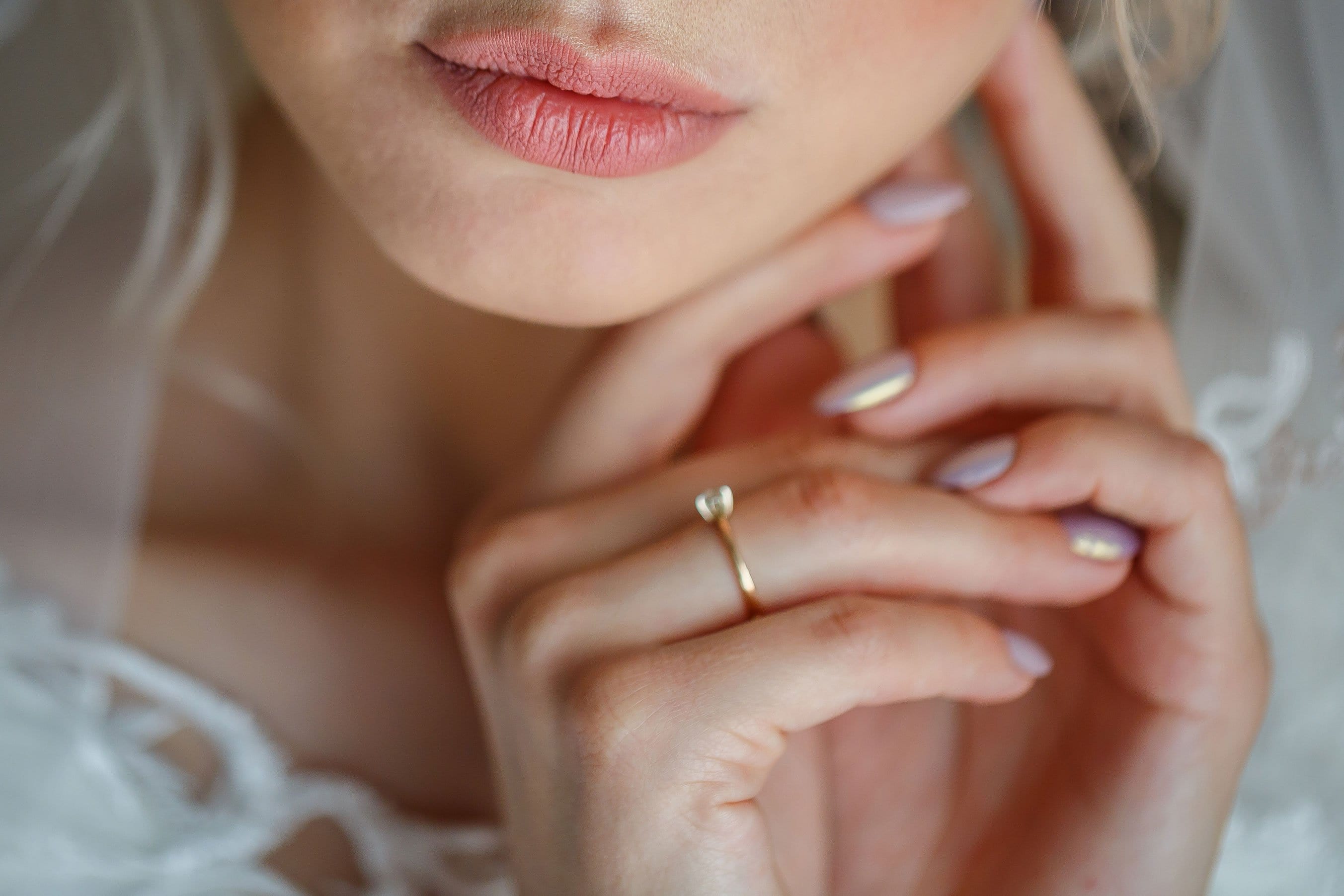Platinum vs. White gold
Platinum
Platinum itself has a range of positive reasons for its use in engagement rings. For one its known for its exceptional durability; it is a dense, strong metal that can withstand daily wear and tear better than most other metals. This makes it an excellent choice for those with a more active lifestyle, and need an engagement ring that will suit this. We always recommend not wearing your engagement ring for things like going to the gym, showering, or anything that could cause damage.

Maintenance
The level of maintenance for platinum is considerably lower than that of white gold. Regular re-plating of white gold is needed to maintain its appearance, meaning that there would be an ongoing cost to the ring. Platinum itself doesn’t require this and would only need an occasional clean.
Hypoallergenic
Platinum is also hypoallergenic, so is ideal for those with sensitive skin or have an allergy to certain metals.
White gold
18ct white gold is generally more affordable than platinum. This can allow for a larger or more elaborate setting within the same budget. It’s often rhodium-plated to enhance its brightness and lustre. White gold is lighter than platinum and can make it more comfortable for some people to wear.

Maintenance
Unlike platinum, white gold requires regular maintenance to keep its appearance. The rhodium plating will wear off over time, meaning a re-plating is needed every few years. This adds an ongoing cost to the ring. Compared to platinum, white gold is softer and more prone to scratches and wear. It may require more frequent polishing and repairs to keep it looking its best.
Alloy Sensitivity
18ct white gold is an alloy, often mixed with metals like nickel, which can cause allergic reactions in some individuals. Platinum will be more suitable for those who suffer with this.
Making the decision
When choosing between platinum and 18ct white gold for an engagement ring, its best to consider the following factors:
- Budget: Platinum is typically more expensive than white gold, so it’s best to decided how much you’re willing to spend. Keep in mind of what is more important to you: the metal quality or the size and design of the ring.
- Lifestyle: If you or your partner have an active lifestyle, platinum’s durability might be more suitable. For those who prefer a lighter ring, white gold could be a better option. We always recommended removing jewellery when carrying out activities that could damaged the ring.
- Maintenance: Consider the level of maintenance you’re willing to commit to. Platinum requires less frequent upkeep, whereas white gold needs regular re-plating to maintain its appearance.
- Skin sensitivity: For those with metal allergies, platinum’s hypoallergenic properties make it a safer choice.
- Aesthetic preferences: Both metals offer a beautiful, elegant look, but their long-term appearance can differ. Decide if you prefer the consistent shine of platinum or are willing to maintain the bright white look of rhodium-plated white gold.
Ultimately, both platinum and 18ct white gold offer stunning choices for engagement rings, each with its own set of advantages. By considering your lifestyle, budget, and personal preferences, you can select the perfect metal for your ring.








